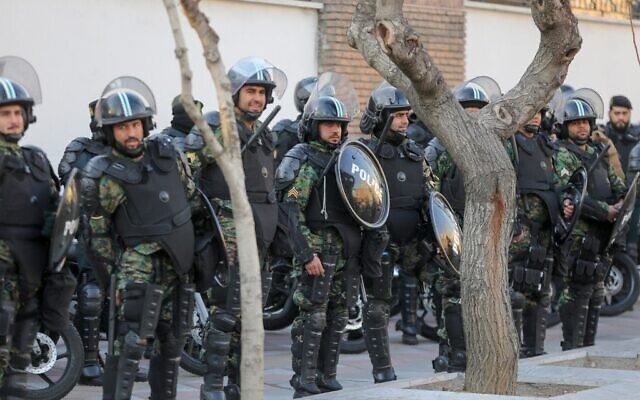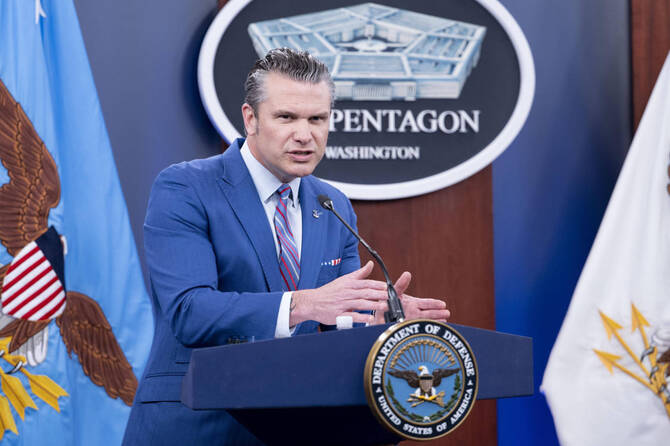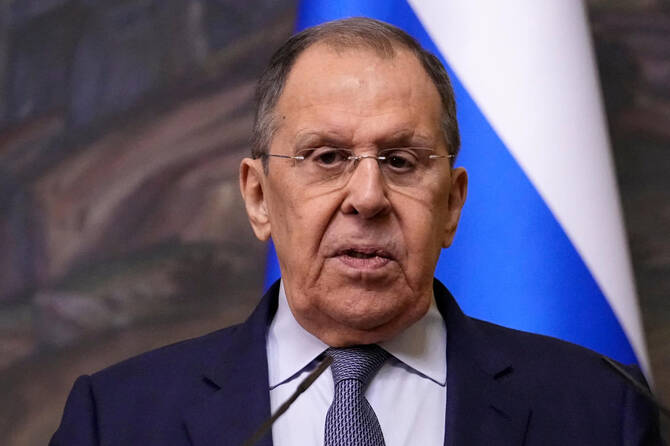Christopher Hamill-Stewart
LONDON: Amnesty International has slammed Iran for its use of “unlawful force” against peaceful protestors and called for “concrete” action by the UN and international community to hold Tehran accountable for its human rights abuses.
The group issued the statement after weeks of demonstrations in multiple regions of the country, most recently among Kurdish minorities in Iran’s Western Azerbaijan province.
“Activists, protesters and bystanders swept up in the wave of arrests, including children, have been subjected to enforced disappearance, torture and other ill-treatment,” said a report by Amnesty.
“Security forces unlawfully fired birdshot at peaceful protesters from Iran’s Kurdish minority in the city of Naqadeh in Western Azerbaijan province on Aug. 7, leaving dozens of people injured.”
Those subject to violence have reportedly avoided seeking out treatment in hospitals, Amnesty added, for fear of reprisals for their role in demonstrations.
“The Iranian authorities have yet again given their security forces free rein to inflict severe bodily injury on protesters to maintain their iron grip on power and crush dissent,” said Diana Eltahawy, deputy director for the Middle East and North Africa at Amnesty International.
“The fact that those injured are risking their lives and health by not seeking medical care in hospital due to fear of arbitrary arrest speaks volumes about the authorities’ cruel methods of torture and other ill-treatment used against arrested protesters,” she said.
The Western Azerbaijan crackdown on Kurds came just weeks after violence in Iran’s Khuzestan province, triggered by a lack of clean and safe drinking water, saw at least nine people killed by security forces using live ammunition in the resource-rich southern province, which is home to many members of Iran’s Ahwazi Arab minority.
Amnesty also slammed Iran for its targeting of children in a wave of “arbitrary” arrests that have taken place across the country in the wake of the Khuzestan and West Azerbaijan protests. Children as young as 12 have been detained, they added.
Eltahawy said: “It is high time the international community takes concrete action over the Iranian government’s repeated deadly deployment of unlawful force with impunity against protesters, including by supporting the establishment of an investigative and accountability mechanism at the UN Human Rights Council to collect evidence of crimes under international law and facilitate independent criminal proceedings.”
Jason Brodsky, senior Middle East analyst at Persian news channel Iran International, told Arab News that he supports the creation of such a mechanism.
“These stories demonstrate that Iran is not just a nuclear file,” he said, adding that the creation of a UN reporting and evidence file “would go a long way in demonstrating that it is possible for world powers to conduct nuclear diplomacy with Iran while holding it accountable for its non-nuclear malign behavior, especially human rights abuses.
“The international community prioritizes the nuclear threat, but has not demonstrated an ability to devote the same level of accountability and focus on Iran’s other problematic conduct.”
With the recent inauguration of new President Ebrahim Raisi — himself heavily implicated in some of Iran’s worst ever human rights abuses — Brodsky said that now is the right time to reprioritize human rights in Iran.
Raisi played a central role in the mass executions of thousands of political prisoners at the tail end of the Iran-Iraq war. Amnesty has dubbed those killings “crimes against humanity,” and repeatedly lamented the lack of accountability that officials directly involved, including Raisi, were subjected to.
“With Raisi’s ascension as Iran’s president, human rights issues will gain more prominence given his own bloodstained record,” Brodsky said, warning: “There is a high likelihood of unrest in Iran in the months and years to come, and the regime will crack down even harder.”






















